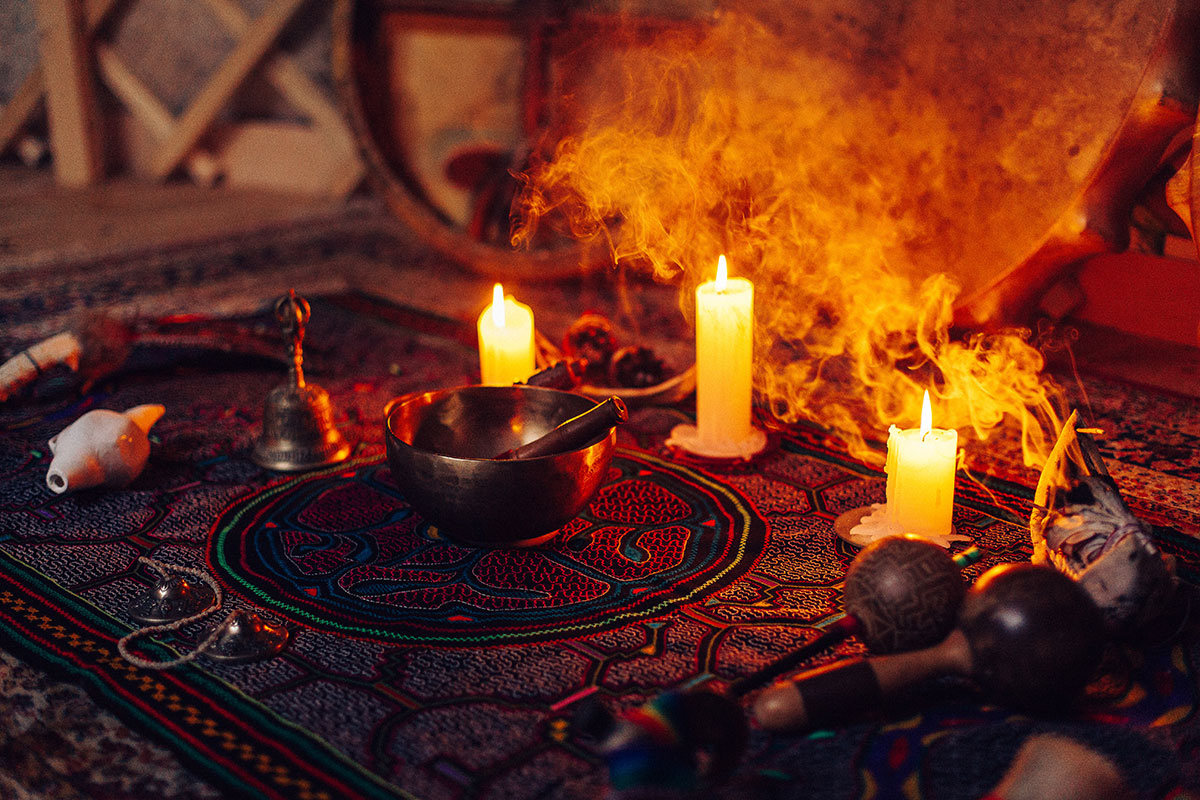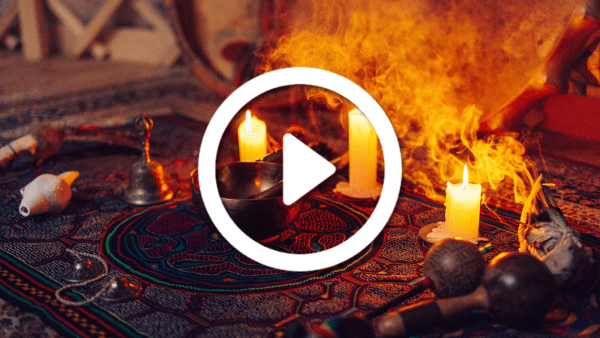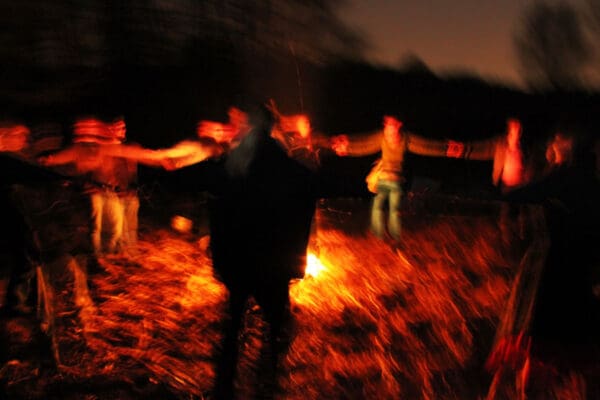While LSD was created in a lab, many of the psychedelics we use today, such as ayahuasca or peyote, were first used in religious ceremonies held by indigenous tribes. Spiritual insight is one of the most popular reasons to seek out psychedelic medicine, and today, there are people from all traditions within the psychedelic community. The following article briefly summarizes the role of psychedelics in both the world’s major religions along with ongoing indigenous cultures. Keep in mind that the history of tribal use of psychedelic medicine for spiritual purposes is vast, and those interested in learning more about entheogens and indigenous cultures should seek out materials specifically relating to that topic.
Psychedelics and Latin American Religions
Today, Americans flock to Latin American countries such as Brazil and Costa Rica to legally partake in ayahuasca retreats, and to Peru for San Pedro ceremonies. However, these regions have been using psychedelic medicine for millennia. Both the Aztec and Maya in Central America used psychedelic medicine such as peyote and psilocybin mushrooms.
While neither the Aztec nor Maya used ayahuasca, today, the brew, which is from the Amazon region of South America and made from two plants, is considered the most important holy plant medicine in Latin America. A 2019 study found that ayahuasca churches such as the “União de Vegetal” (UDV) group, a formal religion from Brazil that blends Christianity and traditional healing, have spread across the world. However, it is crucial to understand that the history of this region and entheogens is far more vast than one study can explain.
Psychedelics and Native American Religions
Prior to the colonization of North America, and even today, Native American tribes used psychoactive plants in ceremonies for spiritual purposes. Like many indigenous cultures, they understood plant medicines such as psilocybin mushrooms, peyote, and other less commonly known psychedelic plants such as salvia and datura as a way to heal, connect with ancestors, and seek spiritual insight. Some historians believe that hallucinogens have been used as early as 9000 B.C. However, when colonized the land, such plant medicine was quickly demonized — but not destroyed, thanks to unrelenting efforts by the Native American Church to protect and preserve their use of peyote as a sacrament. A 2019 study suggests that Native American youth today who identify with their culture are more likely to use peyote for spiritual purposes.
Psychedelics and Christianity
Because the U.S. has the largest Christian population in the world, at around 205 million as of 2015, it’s impossible to apply a definitive statement on the modern use of psychedelics across the many diverse denominations of Christian faiths. . While yes, some Christians take psychedelics, there is an interesting relationship between anti-drug propaganda, the rise of research limitations on psychedelics, and the moral imperative applied by vocal anti-drug leaders such as Ronald Reagan. Some historians, such as researchers Jerry B. Brown Ph.D., and Julie M. Brown, authors of The Psychedelic Gospels: The Secret History of Hallucinogens in Christianity go to great lengths to demonstrate the prevalence of psychedelics, in particular, psilocybin mushrooms, in Christian art. However, any past linkage may be Pagan in nature, as it is documented that Pagan traditions used entheogens. Christianity.
While Paganism was slightly tolerated in the early days of Christianity, when it was outlawed during what’s known as the “Constantine shift” from 313 to 391, Paganism became outlawed. However, many may have continued their tradition discretely and through a Christian lens. As psychedelics can help one understand their own holiness, spiritual revelations from a trip may even be considered blasphemous by some Christian-based faiths.
One notable moment in the history of Christianity and psychedelics is the 1962 Marsh Chapel Experiment, which took place on a Good Friday Service in Boston University’s Chapel Marsh. In a double-blind experiment, half of 20 divinity students were given psilocybin, while the control group received a large dose of niacin. The vast majority of the experimental group experienced intense religious experiences. The findings suggest that psychedelics can encourage and enhance religious experiences.
Psychedelics and Judaism
Like Christianity, Jewish thinkers have proposed that psychedelics could have played a role in early Judaism. A prominent theory is that the forbidden fruit eaten in the Garden of Eden is actually a psychedelic, which would certainly explain its role as a key to knowledge. Others theorize that manna, a divine fruit found by the Israelites in Exodus, could have been a psychoactive fungus. Professor Benny Shanon, of the Hebrew University of Jerusalem, suggests that Moses’ conversation with Yahweh and the bestowing of the Torah, and meeting with the burning bush could have happened after he took DMT. “It seems logical that something was altered in people’s consciousness,” says Shanon. “There are other stories in the Bible that mention the use of plants: for example, the tree of the knowledge of good and evil in the Garden of Eden. The use of such substances, most of which fall in our contemporary Western culture under the label “drug,” has in many traditions been considered sacred.”
Modern-day psychedelic writers such as Madison Margolin have written prolifically about Judaism and psychedelics, in particular, how they helped her reconnect with her Jewish identity. “I never felt so innately Jewish as when I did 5-MeO-DMT,” Margolin writes in an essay titled “Returning Home: Jewish Trauma & Psychedelic Healing.”
Psychedelics and Islam
Most Islamic traditions are conservative in their attitude towards mild-altering substances because the Qur’an only references wine. In some Muslim countries, such as Saudi Arabia, drug use can be met with the death penalty.
However, just like Jewish people or Christians, modern-day Muslims are using psychedelic medicines, and it would be irresponsible to disclose them from any discussion on psychedelics and religion. In the book Tripping with Allah: Islam, Drugs, and Writing, Michael Muhammad Knight connects Islamic tradition with his experience drinking ayahuasca.
Psychedelics and Hinduism
Unlike other popular modern religions, Hinduism has a solid relationship with psychedelics. The Vedas, or the first Hindu text, contain references and hymns devoted to Soma, a psychedelic drink. No one knows for sure what Soma was made out of, but it’s believed to be psychedelic, likely from mushrooms (some even theorize that it grew in cow dung, which could be why cows are holy in Hinduism).
The Rigveda (8.48.3) reads “We have drunk Soma and become immortal; we have attained the light, the Gods discovered. Now what may foeman’s malice do to harm us? What, O Immortal, mortal man’s deception?” Hindu gods are often depicted in art with a cup of Soma in their hands. It’s worth noting that Hinduism is accepting of cannabis, or ganja, in a way other religions are not. However, Hindu teachers do not see such substances as the key to enlightenment, but as a powerful glimpse that must be coupled with work and dedication.
Psychedelics and Buddhism
The biggest connection between psychedelics and Buddhism comes from pop culture. Many early psychedelic enthusiasts, such as Alan Watts, Aldous Huxley, Allen Ginsberg, and Ram Dass. Jack Kornfield once said that “LSD prepares the mind for Buddhism.” But what about the original Buddhists, before Western psychedelic thinkers became turned on to the Four Noble Truths?
Although predominantly concerned with alcohol, the fifth precept is commonly quoted in favor of a sober Buddhist path. It reads, “I undertake the training rule to abstain from fermented drink that causes heedlessness.” In Secret Drugs of Buddhism: Psychedelic Sacraments and the Origins of the Vajrayana Michael Crowley studied Buddhist texts for decades, and finds repeated references to a substance called amrita, which translates to “deathless” or “nectar.” According to Crowley, amrita was a psychoactive substance used in the Buddhist world during the Middle Ages. Crowley and other modern Buddhists agree that while psychedelic medicine is not incompatible with Buddist teachings, one must also integrate meditation, study, and a mindful life if they are to use such substances to deepen their spiritual study.
Psychedelics and Atheism
A 2019 Johns Hopkins survey looked at 4,285 people who reported personal experiences with god either on their own or with the use of classic psychedelics such as psilocybin, LSD, ayahuasca, or DMT. Of the survey participants, 809 responded to the non-drug survey and 3,476 responded to the psychedelics survey. More than two-thirds of self-identified atheists who took the study no longer identified as an atheist over their god encounter experience. However, as Scientific American points out, there may be an inherent bias, as only people with personal experiences of god took the study. While psychedelics help people open up to new experiences and points of view, it would be irresponsible and even harmful to the medicine to say that psychedelics will change one’s religious beliefs.
“I’m atheist and I loved my experiences on mushrooms. It’s a chemical that alters your brain state. There’s nothing magical about it,” writes one Reddit user. “The idea that a mind-altering drug is evidence for a spiritual world is ridiculous. If anything, it shows that these experiences can be explained entirely in naturalistic terms.”
Due to the vast healing potential of psychedelic medicine, it’s best to let people have agency over their experiences, rather than prescribe any set of beliefs. Although, perhaps as a light warning, there are instances of agnostics dropping their business plans after a divine psychedelic experience, such as cannabis tech startup co-founder Aeron Sullivan.
Conclusion and Final Thoughts
While some religions, such as Christianity and Islam, seem incompatible with psychedelic medicine at first glance, there are individuals today who use psychedelics to deepen their religious connection. Others, such as Native American religions or Buddhism, fit much easier into the psychedelic culture. Despite the medicine’s spiritual reputation, even atheists can benefit from psychedelic healing. As a result, while studying a religion’s psychedelic roots, or using the medicine to connect with one’s own faith is an important experience, the psychedelic community would be best suited not to make wide-scale judgments about any religion, to ensure no one is excluded from the experience.
Suggested further readings:
Entheogens and the Future of Religion
The Psychedelic Gospels: The Secret History of Hallucinogens in Christianity
Secret Drugs of Buddhism: Psychedelic Sacraments and the Origins of the Vajrayana









